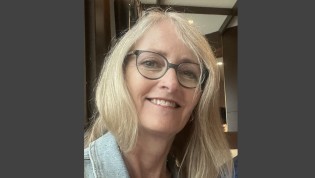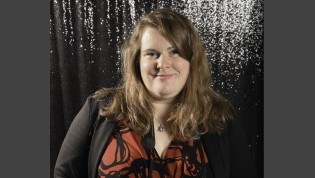This article about getting invited on press trips is written by Vanessa Chiasson, a freelance writer based in Ottawa who specializes in travel and human interest stories.

Have you ever wondered how to get invited on press trips?
Before I embark on any trip as a travel writer, I always hear the same question from family, friends, colleagues, acquaintances, and even near strangers: Do I have room in my luggage for them to tag along?I understand the jealousy (heck, it’s a big reason I love being a travel writer!), but for my colleagues, there’s no need for it. They can go on press trips themselves! However, many people don’t know how to start this process.
How do you get on lists? What can you do to connect with tourism boards? Can you go on press trips when you aren’t a travel writer?
The primary purpose of a press trip is to allow a journalist to gain access to the people, places, and information they need to pursue a story.When a tourism board is hosting, the focus is naturally on travel. However, there’s no reason a freelancer specializing in food, wine, small businesses, ecology, weddings and more can’t be a part of them, as the secondary purpose of a press trip is that it allows destinations the chance to push their priorities.
Do they hope to have more newlyweds visiting their fancy hotels for a honeymoon, or are they eager to welcome bus tours to their museums? Are they keen to showcase their region as a fantastic getaway for music lovers, history buffs, or bird watchers? You might just be the kind of freelancer they need.
Here's the #1 secret for getting invited on press trips from a professional travel writer
The secret to getting on a press trip isn’t how good of a writer or photographer you are.The secret for getting invited on press trips also doesn't lie in securing a juicy assignment.
Getting invited on press trips is all about value.
Tourism boards and destination marketing organizations put a lot of time, energy, and resources into hosting journalists. They want to see a return on their investment. What is considered an acceptable return varies tremendously, but there is an easy way to find out. Ask!
If you’re eager to be part of a press trip to Montreal, Lake Placid, or Belize, poke around on the media section of the respective tourism board websites (you’ll often find a tiny link in the footer).
What are they emphasizing? Is it nature? Family adventure? Luxury dining? What kind of stories have they shared online? Are they proudly showing off content about their microbreweries or their historical societies? Do they care about juicy print bylines (great for an established freelancer eager to enjoy more travel)? Are they keen on making a splash online with gorgeous images (perfect for an Insta-famous photographer)? Do they prefer to organize group press trips and send out invitations, or do they host journalists individually and want you to approach them?
Send a letter of introduction and ASK.
How to get started when you're new to press trips
While there are no hard or fast rules about who to contact first, the easiest and most successful way to start is to connect with the tourism board in your backyard. It all comes back to that value proposition. If you’re just beginning, you’ll unlikely be invited on an all-expenses paid trip to tour Bordeaux’s wineries—unlikely, but not impossible.However, it’s much more probable that a nearby tourism board is willing to invite you to the opening of a swanky cocktail bar. There’s little risky investment on their behalf. So, do some research.
Who represents your region? Are you dealing with a tourism board or perhaps a PR firm that handles things on their behalf? What are their priorities? Do they have a media list so you get announcements about special events? There are always locally-focused activities (like hotel openings, new food trails, and art exhibitions) packed with home-grown talent, and you should be there!
True, it’s not a full press trip but it’s a hosted travel event and an excellent way to make connections. Don’t be shy about sharing the resulting content you produce, and start building that relationship. Tourism board employees swap recommendations with their colleagues just like we do!
Conferences are another excellent opportunity to connect with the tourism board representatives who host press trips. Some popular options are:
- The Travel Media Association of Canada
- TBEX
- IMM (The International Media Marketplace)
- The Women In Travel Summit
- The Society of American Travel Writers
Finally, don’t take rejection personally. All tourism boards receive more requests for press trip assistance than they can accommodate in any given year. You can do plenty of research and have plenty of value to offer but still be turned down. As freelancers, we know our work is about building relationships with our sources, editors, and publishers. Making the connections needed to get press trip invitations is no different.
Other travel writing articles you may like
- The state of the travel writing industry
- Travel writing tips from writer and editor Jennifer Bain
- Turning Your Holiday into a Travel Writing Opportunity
Search
Recent Posts





